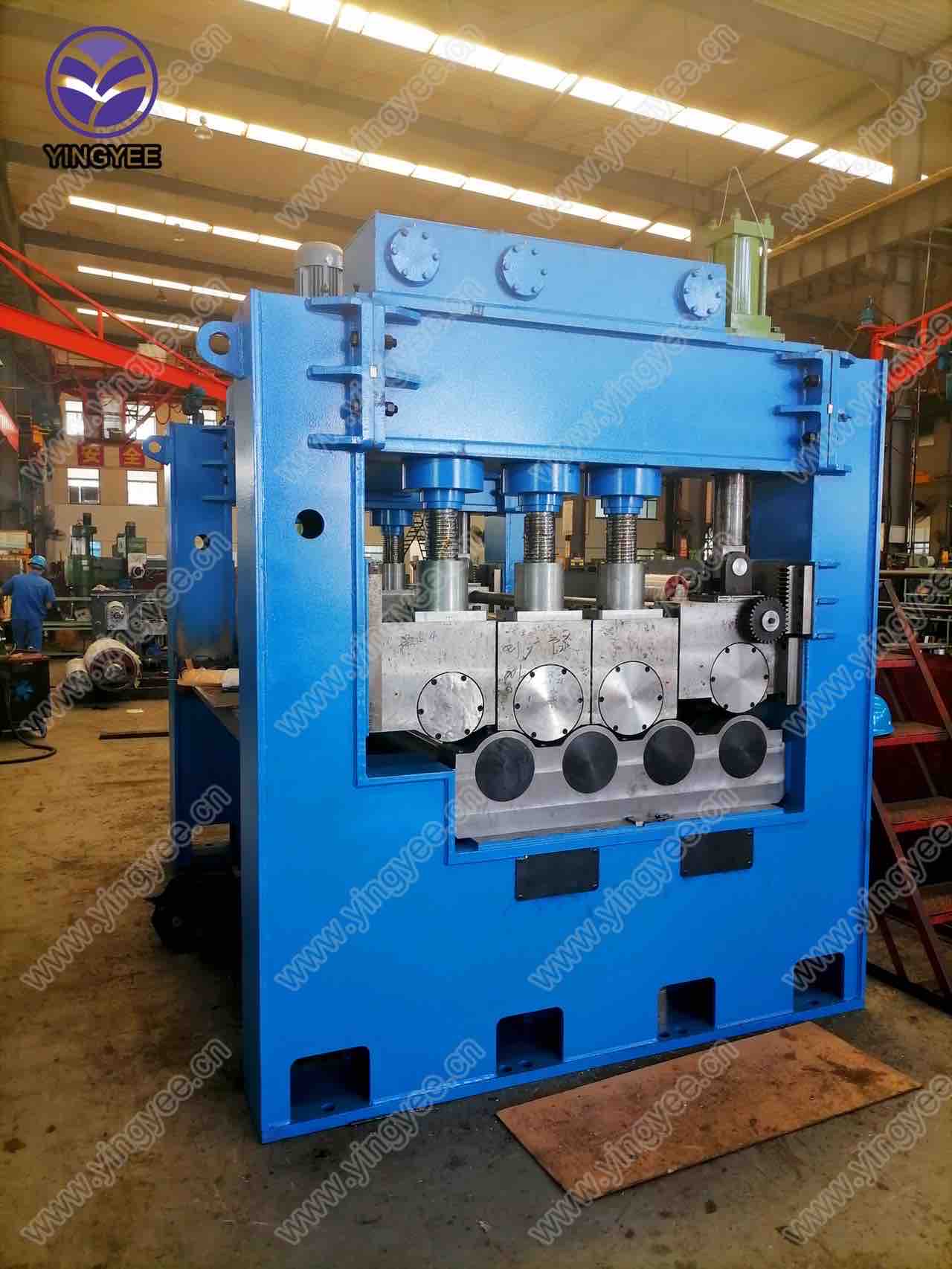
The Importance of Guard Rail Cold Roll Forming Machines in Modern Infrastructure
In the realm of modern infrastructure, road safety is a paramount concern. Among the various protective measures taken to ensure the safety of drivers and pedestrians, guardrails play a crucial role. These structures are designed to prevent vehicles from veering off the road, thereby minimizing the risk of accidents, especially in high-traffic areas or hazardous zones. To meet the growing demand for high-quality guardrails, the manufacturing process must be efficient, precise, and cost-effective. This is where guard rail cold roll forming machines come into play.
Understanding Cold Roll Forming
Cold roll forming is a process that involves the continuous bending of metal sheets or strips into desired shapes without the need for extensive heating. This method is particularly advantageous for producing guard rails, as it enhances the strength and durability of the final product. The cold forming technique allows for the creation of complex profiles with precise dimensions, ensuring that the guard rails meet the rigorous safety standards required in road construction.
Key Features of Guard Rail Cold Roll Forming Machines
Guard rail cold roll forming machines are equipped with several essential features that enhance their efficiency and output quality. Firstly, these machines often utilize advanced CNC (Computer Numerical Control) systems to ensure precision in the forming process. This allows manufacturers to create guard rails with consistent profiles and dimensions, which are crucial for installation and overall effectiveness.
Moreover, many modern machines are designed for versatility. They can produce various types of guard rails, accommodating different specifications based on the needs of specific projects. This adaptability not only saves time and resources but also allows manufacturers to respond quickly to market demands.
Efficiency is another critical factor. Guard rail cold roll forming machines are capable of high-speed production, significantly reducing manufacturing time while maintaining tight tolerances. This is essential for meeting the demands of large-scale infrastructure projects where time is of the essence.

The Economic Impact of Guard Rail Manufacturing
The manufacturing of guard rails using cold roll forming machines has a positive economic impact. It enables manufacturers to produce high-quality products at a lower cost compared to traditional fabrication methods. This cost-effectiveness is particularly important in today’s competitive market, where budget constraints often dictate project feasibility.
Furthermore, the efficiency of cold roll forming machines contributes to reduced waste. Since the process can be finely tuned to minimize excess material, manufacturers can operate with a leaner approach. This not only conserves resources but also aligns with the growing emphasis on sustainable practices within the manufacturing industry.
Quality Control and Safety Standards
Given the critical role guard rails play in ensuring road safety, adherence to quality control measures and safety standards is imperative. Manufacturing facilities utilizing guard rail cold roll forming machines often implement rigorous testing and quality assurance processes. This ensures that each batch of guardrails produced meets the necessary safety certifications and performance criteria.
Regular inspections, material testing, and adherence to industry standards are integral to the manufacturing process. This commitment not only protects end-users but also enhances the reputation of manufacturers in a highly regulated industry.
Conclusion
In conclusion, guard rail cold roll forming machines are pivotal in advancing road safety through the efficient production of high-quality guardrails. Their ability to deliver precision, versatility, and efficiency speaks to the demands of modern infrastructure projects. As the importance of safety in transportation continues to grow, so too will the reliance on advanced manufacturing technologies like cold roll forming. By investing in these machines, manufacturers not only secure their place in the market but also contribute significantly to the safety and well-being of road users worldwide.